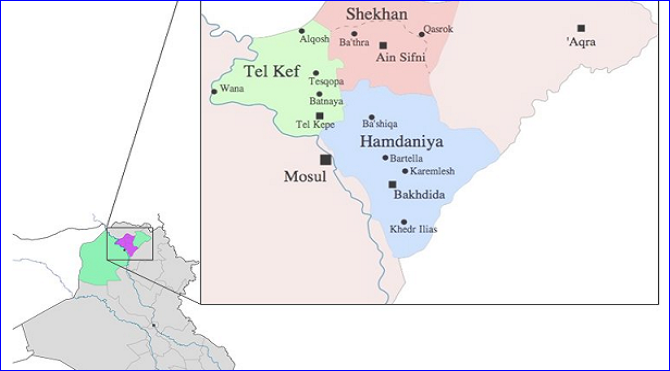


On August 4, 2014, just one day after the so-called Islamic State (ISIS) launched its campaign of terror against the Yazidis in Shigur (Sinjar), the extremist group turned its guns and ideology against the Christians of the Nineveh Plains. What followed was a systematic campaign of ethnic and religious cleansing, targeting one of the world's oldest Christian peoples.
Related: Timeline of ISIS in Iraq
Related: Attacks on Assyrians in Syria By ISIS and Other Muslim Groups
Speaking to Agos ahead of this year's commemoration, Joseph Sliwa, President of the Bethnahrin Patriotic Union (Huyodo Bethnahrin Athroyo, HBA), and former Member of the Iraqi House of Representative, emphasized the gravity of what transpired. "This was not just displacement. It was an attempt to wipe out the very existence of our people from our ancestral homeland," he said.
A Genocide Rooted in Historical Erasure
The Chaldean-Syriac-Assyrian people, among the oldest inhabitants of Beth Nahrain (Mesopotamia) and among the first to embrace Christianity, have faced waves of massacres, forced conversions, and displacement for centuries. The 2014 assault on the Nineveh Plains, which unfolded alongside ISIS's brutal campaign in Mosul and Shigur (Sinjar), stands as one of the most devastating chapters in this long history.
ISIS initially offered the Christians of Nineveh a grim choice: convert to Islam, pay a jizya tax, or abandon their homes and belongings without resistance. When these conditions were rejected, mass displacement ensued. Local militias, including Peshmerga forces who had pledged to protect the region, ordered Syriac villagers to hand over their weapons -- a disarmament that left them vulnerable to the oncoming ISIS advance.
In a matter of days, hundreds of thousands fled, often on foot, leaving behind everything they owned. ISIS quickly moved in, destroying 85 churches across Mosul and the Nineveh Plains, burning cemeteries, and looting homes. Even graves were desecrated -- coffins opened, and relics stolen.
"A People Nearly Erased"
The human cost was staggering. Jospeh Sliwa recounts how "thousands were killed, women and children taken hostage, and those who survived had no choice but to leave." Most fled to Chaldean-Syriac-Assyrian-majority towns in the Kurdish region -- Arbil, Nohadra (Duhok), Ankawa, and Shaqlawa. Others sought refuge abroad, leading to a massive decline in Iraq's Christian population -- fewer than 500,000 today.
While Chaldeans-Syriacs-Assyrians have since returned to the Nineveh Plains, Sliwa notes that the overall return rate is less than half. In Mosul, the spiritual heart of many Chaldean-Syriac-Assyrian Christians, nearly no one has gone back. "ISIS may have lost militarily, but the mindset -- the social and religious intolerance -- is still deeply rooted in parts of Iraqi society," he said.
A Call for Autonomy and Recognition
Despite the Iraqi Parliament officially acknowledging ISIS's crimes, no formal steps have been taken to recognize the events as genocide under international law. For Sliwa and many others in the Chaldean-Syriac-Assyrian people, this silence is not only unjust -- it is dangerous.
"If Nineveh is not granted autonomous status with proper protections, we fear that what remains of our people will disappear," Sliwa warned. "The ideologies that gave rise to ISIS are still alive in the region. Without structural guarantees, more tragedies will come."
He underscored that preserving Syriac culture and community life cannot be left solely to non-state actors or NGOs. "This is a state responsibility," he insisted. "The state must rebuild trust and provide security so that our people can live with dignity in their own homeland."
"Before It's Too Late"
The HBA President's plea is clear: international recognition of the genocide, and concrete steps to ensure that the Nineveh Plains becomes a protected, self-administered region for its indigenous inhabitants.
"Our identity has been misrepresented for too long," he said. "We are the descendants of Babylon, Assyria, Akkad, and Sumer. Our people have paid the price for simply trying to survive as Christians in their native land."
On this twelfth anniversary of the Nineveh Plains Genocide, Chaldeans-Syriacs-Assyrians around the world remember the lives lost, the homes destroyed, and the culture nearly extinguished. But remembrance, they insist, is not enough. Without international accountability and local autonomy, the risk of another genocide remains tragically real.
"We must protect what remains," Sliwa said, "or there will soon be nothing left to protect."

or register to post a comment.